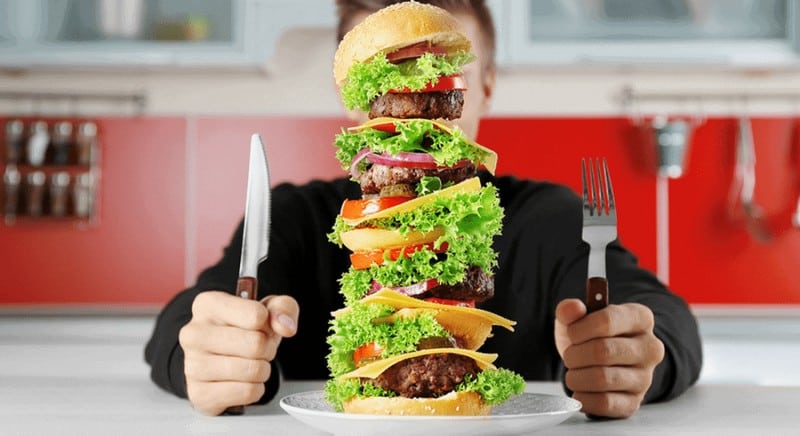Overeating

The human body requires food to function properly, but consuming food should be in moderation. If a person overeats, the excessive food in the stomach causes acid reflux. If the person has gastroesophageal reflux disease, too much food can worsen the symptoms, leading to abdominal pain and heartburn.
Overeating increases calorie levels, which the body converts into fat and stores. Excess fat leads to weight gain, which, if not checked, could make the person obese. In addition, other complications are attributed to overeating, such as high cholesterol levels, pancreatic stress, and diabetes.
If a person consumes more food than recommended, the individual may feel bloated because the stomach stretches excessively to accommodate the large quantity of food ingested. The stomach limits how much food and liquid it can accommodate. If it is beyond its capacity, the risk of acid reflux increases. The stomach produces acid that breaks down and digests the food a person eats. The stomach acid collects on top of the food. Thus, when a person overeats, the space for the stomach acid can cause the person to belch and expose the lower esophagus to gastric acid, which can back up the food pipe.










